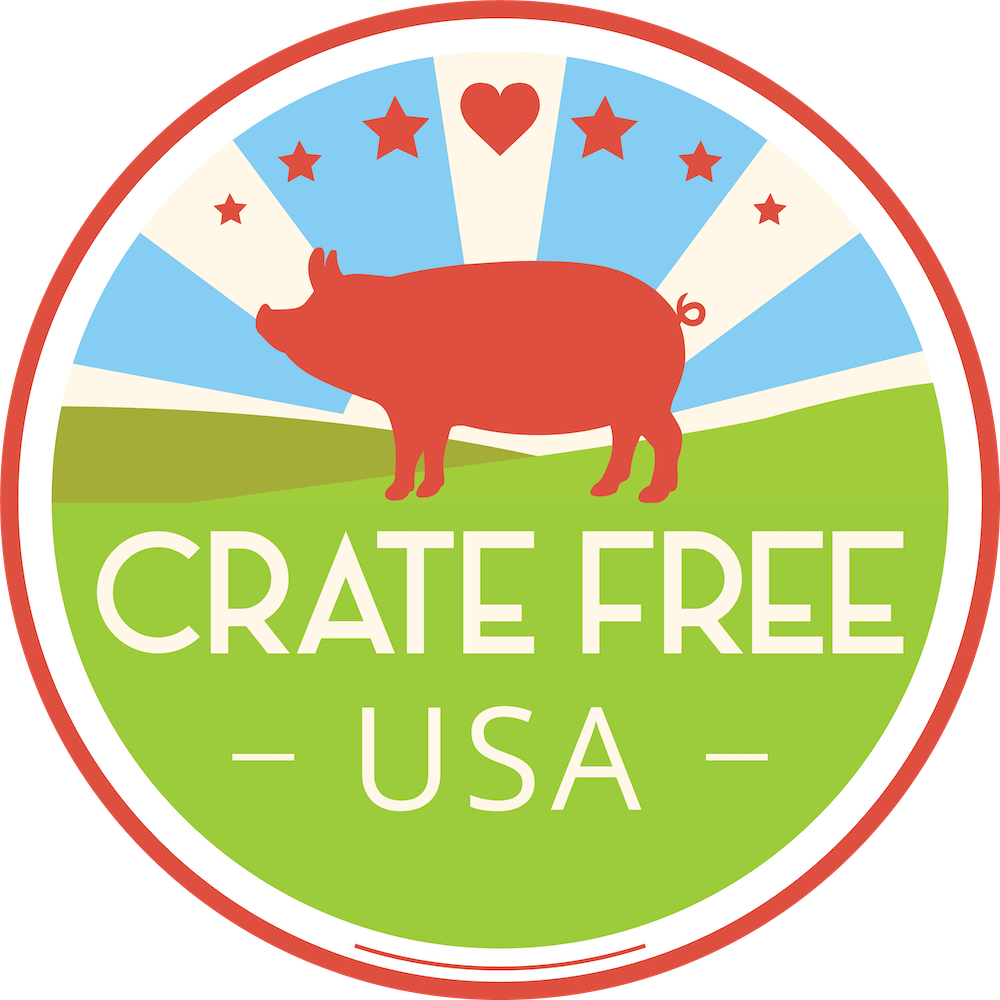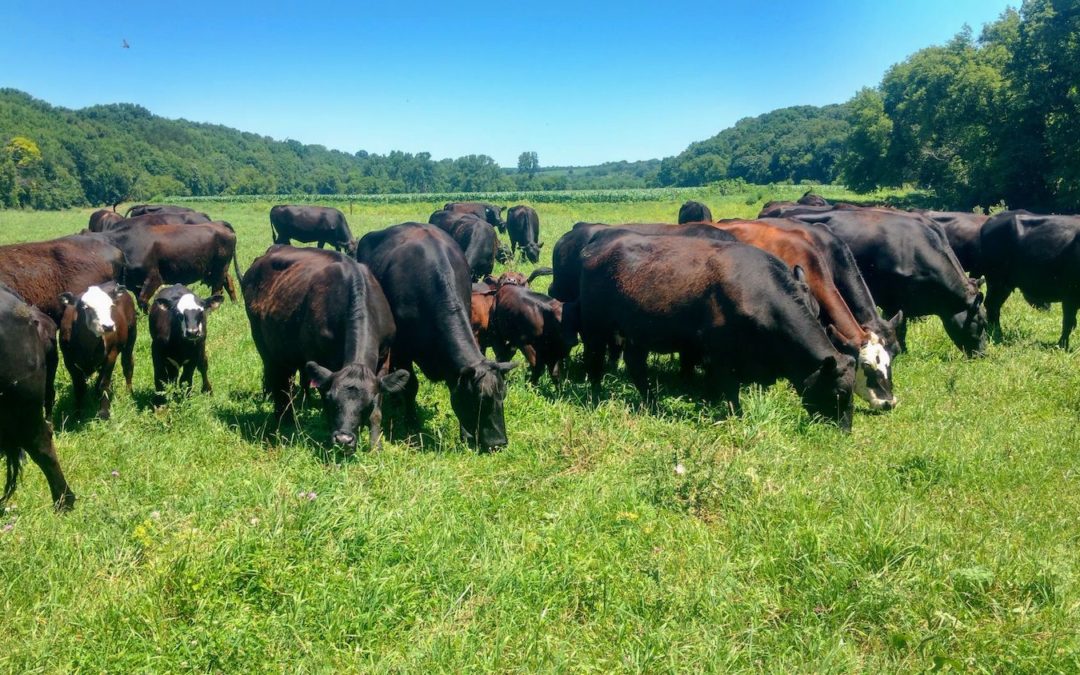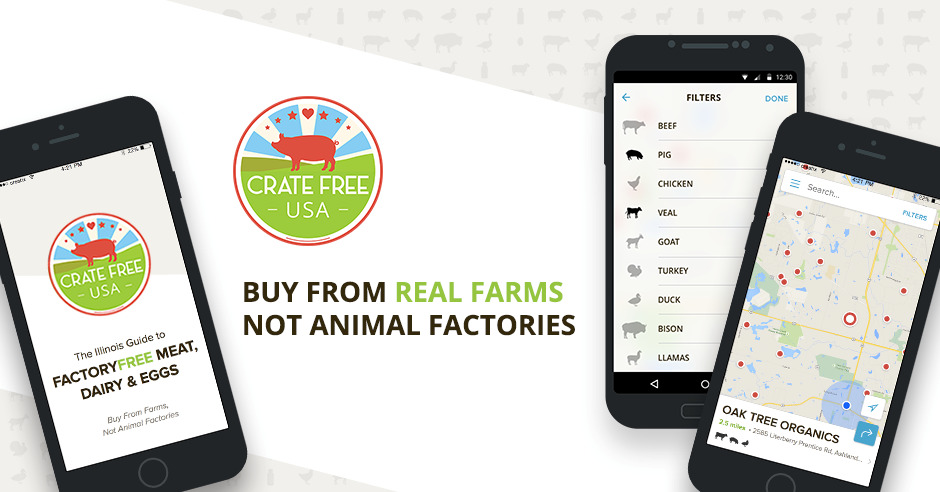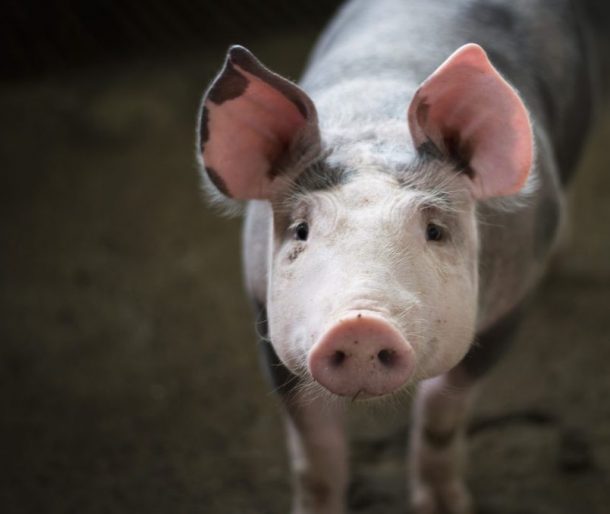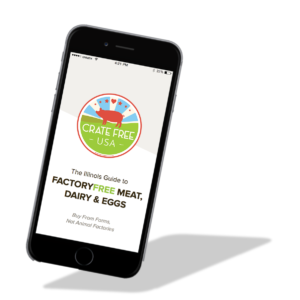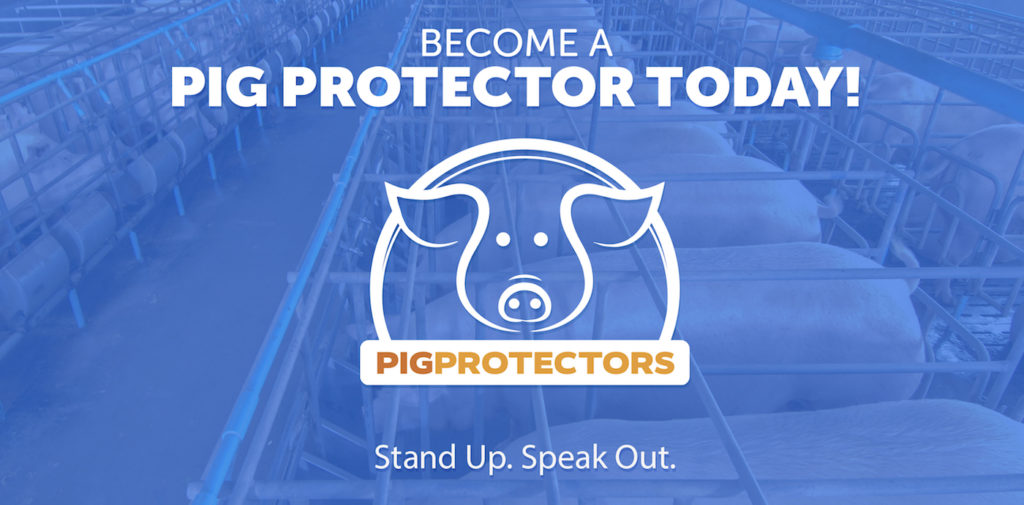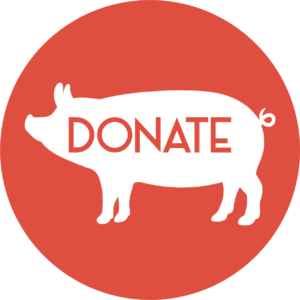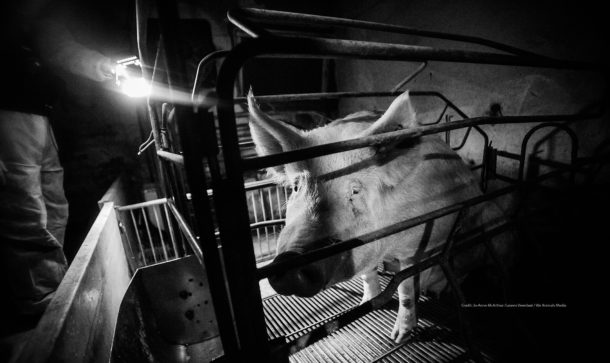At Crate Free USA, our mission is to improve the lives of animals raised for food. And since the vast majority of Americans still eat meat, the best way to do this is to shop from local farmers who care about the animals they raise far more than the huge factory farms and corporations who own so much of the food industry today. While we do promote a reduction of meat in your diet, we also support our local farmers who raise animals more humanely and sustainably.
It’s easy for you to find a local, sustainable farmer near you in Illinois.
Just download our free mobile app!
It’s a family affair at Arnold’s Farm. Tom Arnold and his wife Jessica farm a diversified livestock operation just outside of Elizabeth, Illinois, in the Apple River valley and surrounding hills of scenic Jo Daviess County. They are assisted in various capacities by their three grown children: Vanessa, Cody, and Andrew.
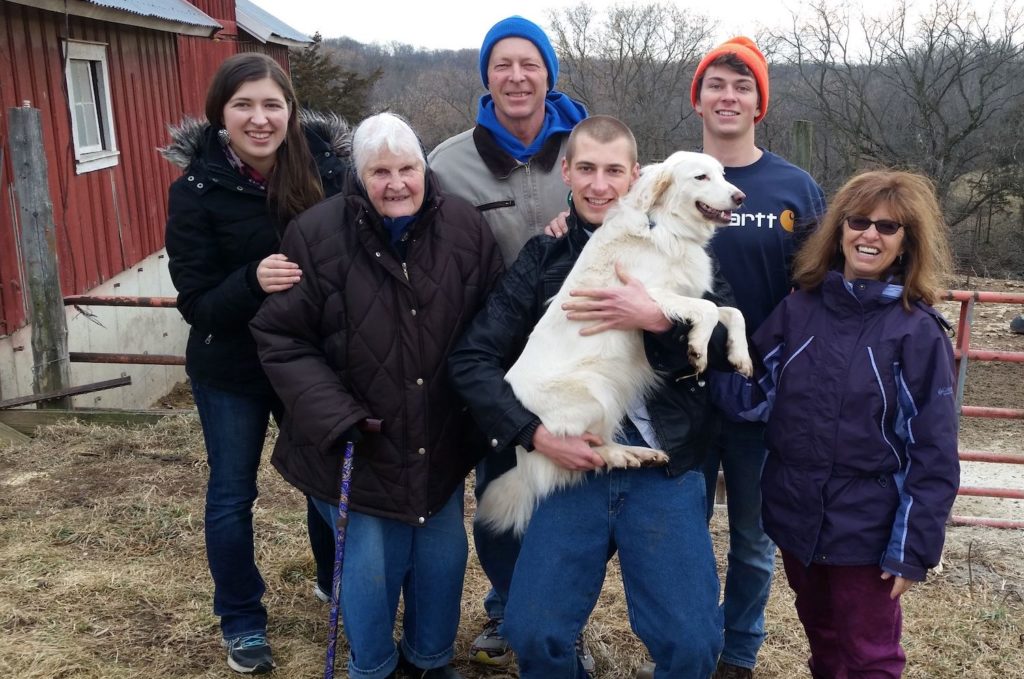
The Arnold Family
Their farm consists of 480 acres of driftless region land and is managed roughly as one-third pasture, one-third crops, and one-third timber. Beef cows, hogs, chicken, and turkey are raised along with most of their feed.
A majority of the property has been owned and operated continuously by the Arnold Family since 1886 with an adjoining farm being added by Tom’s parents in 1978. They are the fourth and fifth generations to continue stewardship of this land and livestock.
How did you first become involved in farming?
I grew up on the farm where I live. We had a 45-cow dairy herd, fed out the steer calves as beef, had a farrow-to-finish hog set-up, and raised all feed for the animals, including corn, oats, hay, and pasture. My mother had a flock of 100 laying hens and traded eggs for family groceries at a local general store.
As early as I can remember, I had chores: collecting eggs, feeding calves with mom, and gradually milking cows and doing field work. I had chickens and hogs as 4-H projects. The farm was my “job” until graduating from high school.
I went to college as a music major, dropping out after two years to travel the country as a rock and roll keyboard player. Winding up in southern California, I gave up the “fast life” for a “real job” working for a food distributor. Starting as a delivery driver, I transferred to the warehouse a year later and soon became supervisor of the facility and 16 employees. At the passing of my father in 1988, I returned to the farm to try my hand at keeping it viable and to start a family.
Why is farming sustainably and more humanely important to you?
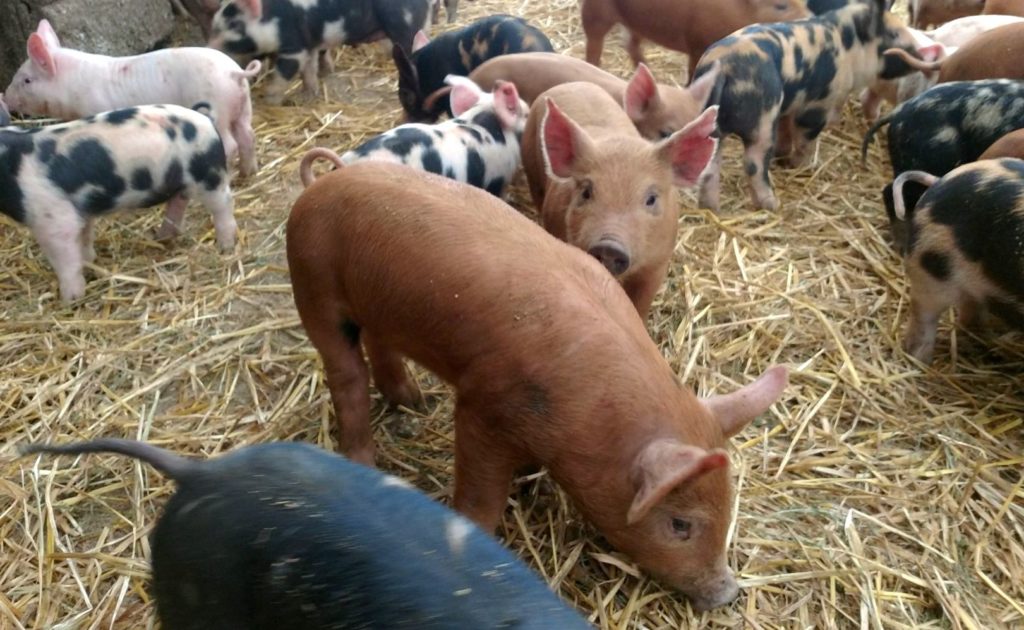
Pigs and bedding at Arnold Farm
I’m always amused by the question “Why do you farm sustainably/humanely?” because that was how I grew up farming and always thought it should be. Only after moving away for awhile did I realize it was “a thing” that was disappearing. Livestock raising was being co-opted by input suppliers and marketers, squeezing the profit margins out of farmers and forcing them to cut corners in the name of efficiency to stay in business. Coming back to the farm, I wanted to maintain sustainability and respect for livestock living conditions by figuring out how to value-add to the products the farm produced, thus returning a smaller farm to profitability.
How have the economics of farming changed in the last several years and how has it affected you? What further changes are you anticipating?
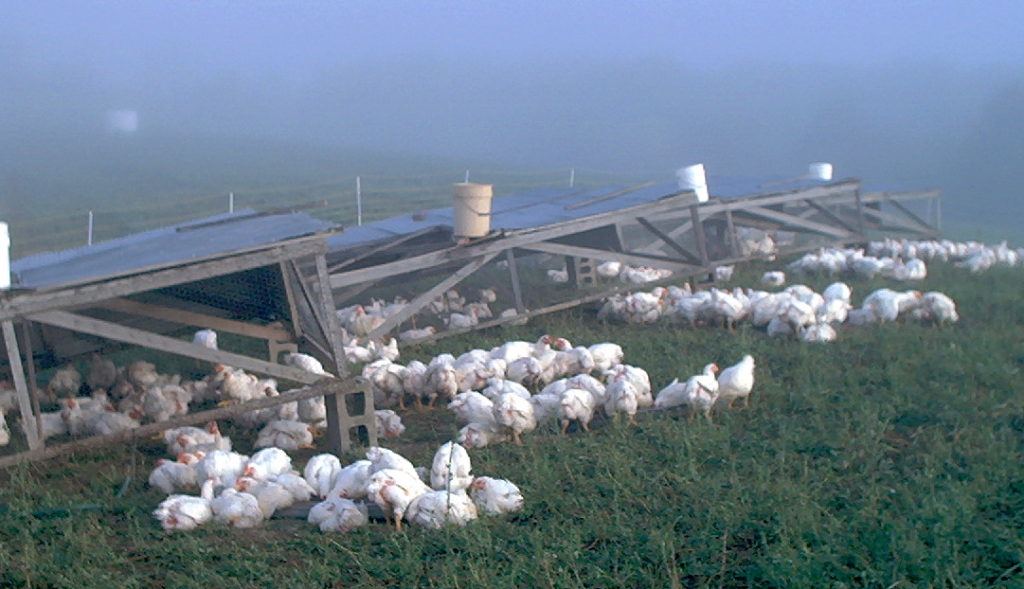
Chickens in the fog at Arnold’s Farm
With the COVID-19 crisis came a huge increase in direct-to-consumer meat sales, which is how we have marketed our livestock for the past 30 years. Some input costs, such as fuel, went down, but availability of other inputs, such as repair parts and equipment, became tight. With the subsiding of pandemic restrictions, all inputs have skyrocketed, with fuel, fertilizer, and purchased feeds leading the way. Consumer sales have settled back to slightly above pre-pandemic levels. Unfortunately, this level is not covering increased input costs. Going forward, we are adjusting meat pricing upward to achieve an acceptable profit margin and hopefully not lose customers. We are also rolling out new combinations of products to entice increased sales.
What are your views on extreme confinement and gestation crates for pigs?
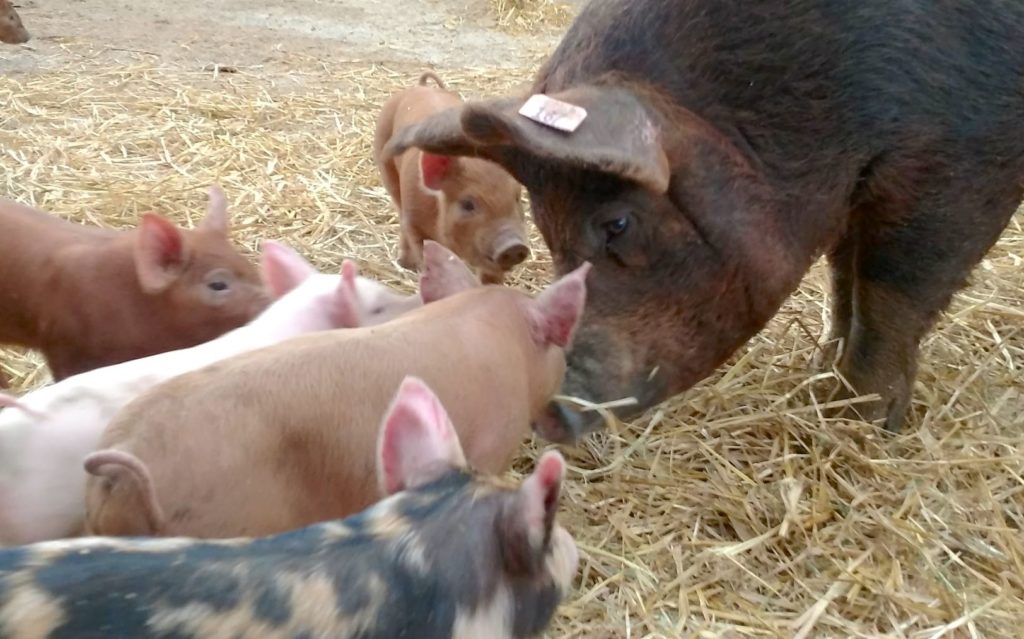
Our farm has never used [extreme confinement] in raising livestock. The mindset has always been to emulate “natural” conditions for the animals as much as a for-profit production system will allow. This was one reason for direct marketing meat rather than live animals as it value-added to what we grew, resulting in a premium price that covered the extra time and cost to maintain systems that were normal on the many smaller farms I grew up knowing.
Would you support a bill to end extreme confinement? Why or why not?
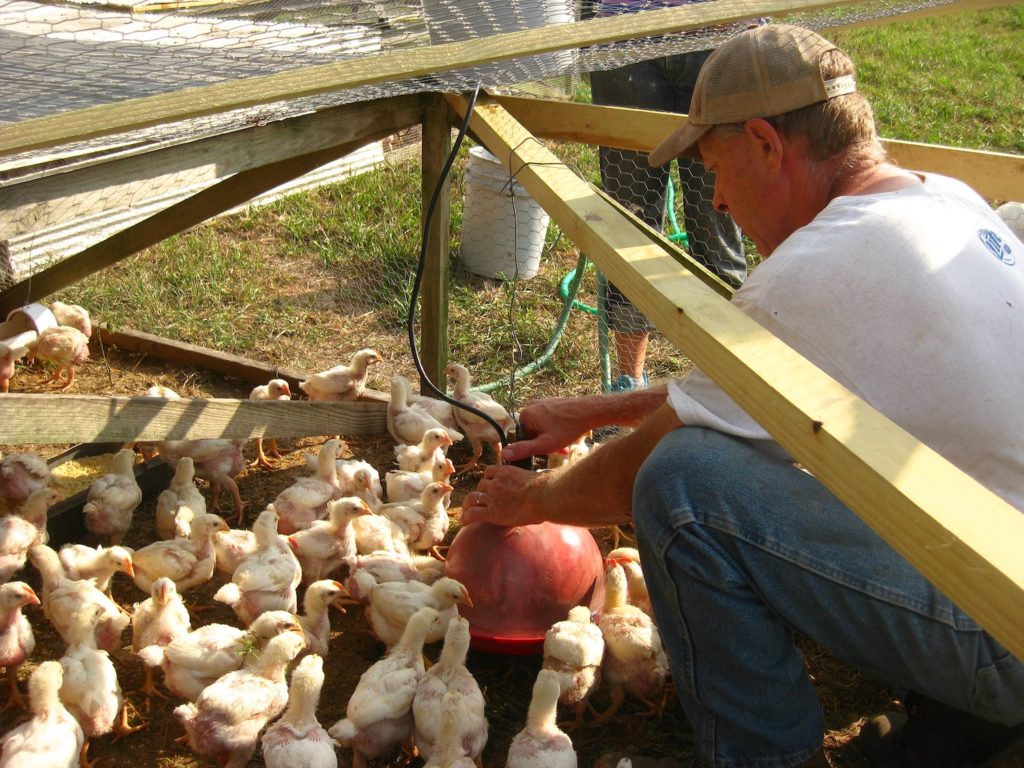
Tom Arnold adjusting the chicken waterer
I have to say I see marginal success to government regulation in these areas. Look at current legislation on the books (California’s Prop. 12) and how long confinement operations have dragged their feet to comply.
I put responsibility for more speedy and lasting change with consumers and their buying habits. If people are not supporting farmers and companies employing alternative, positive production methods, laws will have slow, if not little, effect. Large companies respond to where the money is. If it is in cage-free and more space for all livestock, they will comply willingly.
What can consumers do to help improve the lives of all our farm animals?
That is in the previous answer. Consumers will be best served by supporting farms, retail outlets, and restaurants that encourage humane approaches to raising livestock. Their support will influence companies that need to change to more acceptable production methods.
How do you market and sell your products? How can people shop with you/find you? Can they visit the farm?
Arnold’s Farm markets all their livestock as meat directly to consumers. This is accomplished through a newsletter/ordering/delivery system, a local on-line farmers market, an on-farm store open by appointment, and several retail establishments and restaurants.
Selling points include: no hormone, antibiotic, or growth promotant use in raising of the livestock; rotational grazing practices; all animals raised outdoors in fresh air; direct connection to the farm/farmer; locally raised and processed; fresh, high-quality cuts minimally processed.
We can also be reached by emailing tom@arnoldsfarm.com.
